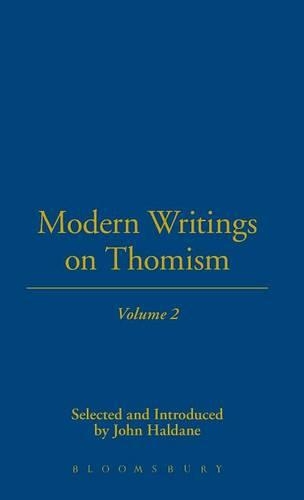
Modern Writings On Thomism
(Hardback)
Publishing Details
Modern Writings On Thomism
By (Author) John Haldane
Bloomsbury Publishing PLC
Thoemmes Continuum
8th January 2004
United Kingdom
Classifications
Tertiary Education
Non Fiction
149.91
Physical Properties
Hardback
2035
Description
Deriving from the name of its originator, Thomas Aquinas (1225-74), Thomism is a body of philosophical and theological ideas that seeks to articulate the intellectual content of Catholic Christianity. St Thomas was one of the main figures in the medieval Scholastic movement and wrote some of the greatest ever commentaries on Aristotle (also available from Thoemmes Press). Aquinas and his followers believed that faith and reason are both routes to truth - a conflict between them being impossible because they both originate in God - and Aquinas's celebrated "Five Ways" of proving the existence of God have remained central objects of study in the philosophy of religion ever since. The historical influence of Thomism has been enormous, and Thomist theologians and philosophers continue to work in what may be the longest continuous intellectual tradition in the Western world. Twentieth-century Thomists had important things to say in all of the key areas of philosophy: logic, metaphysics, theory of knowledge, ethics, natural science and philosophical anthropology. John Haldane has made a considered selection of half a dozen works which represent the best expositions of Thomistic approaches from the period between the first translation of Aquinas's Summa Theologiae into English (1912) and the start of the Second Vatican Council (1962) which transformed the intellectual world of Catholicism. In his substantial introduction to the set, Haldane gives an overview of the history of Thomism and locates these six books within it. He also looks ahead to the prospects for Thomism in the 21st century and beyond.
Author Bio
John Haldane is Professor of Philosophy and Director of the Centre for Ethics, Philosophy and Public Affairs, University of St Andrews, UK.
